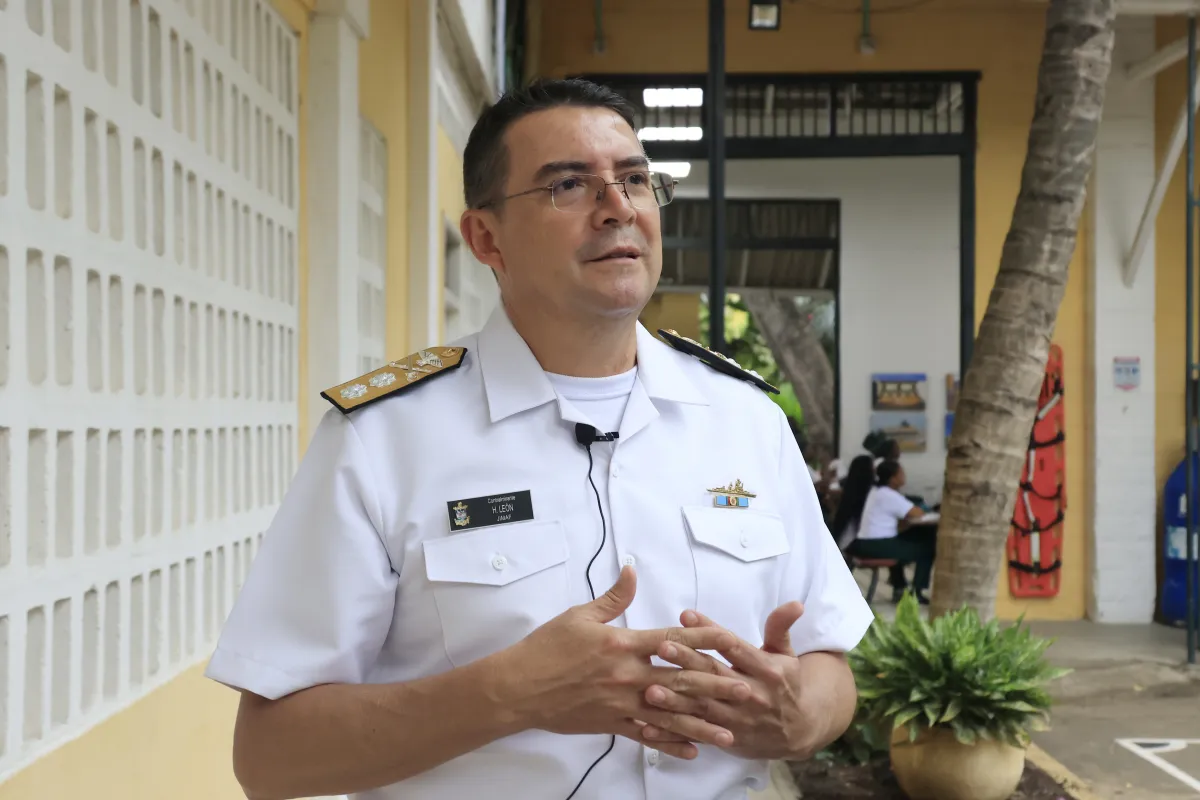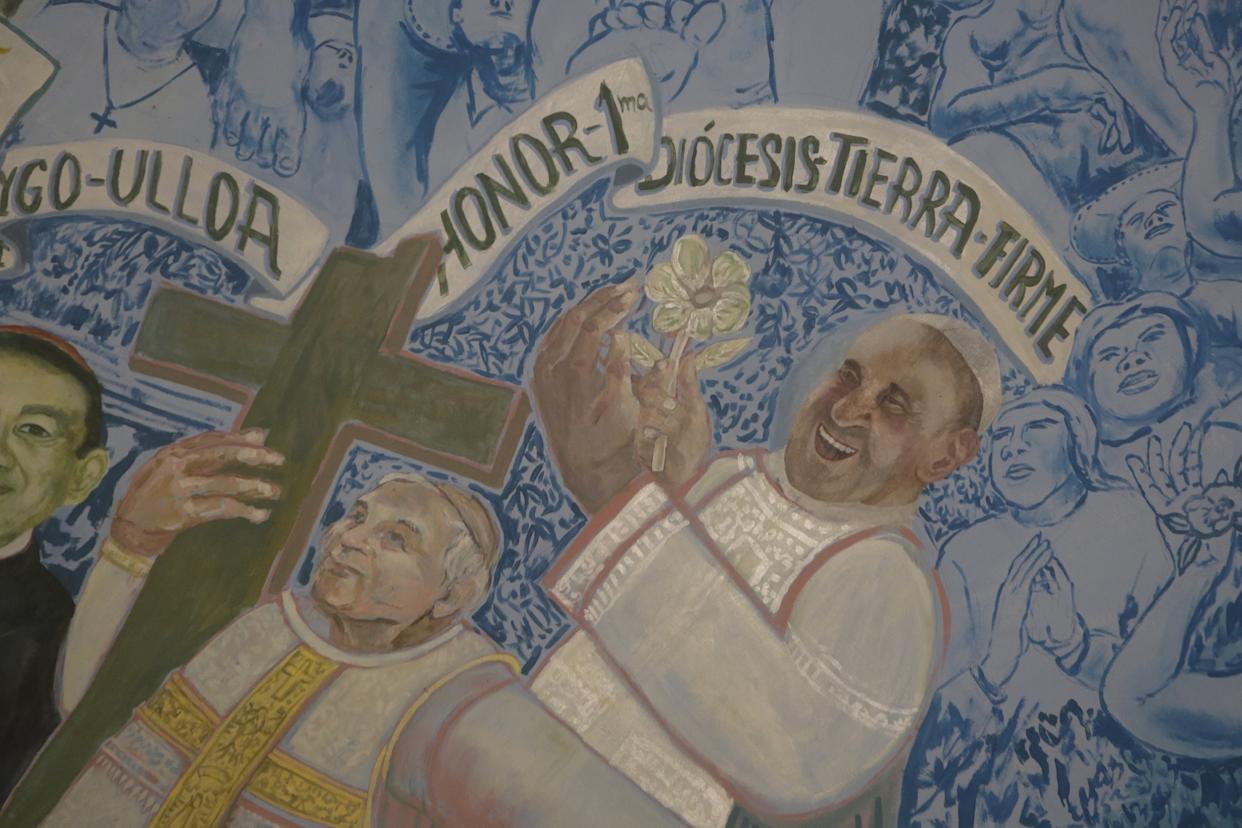International
Investigation of the San José galleon, the great scientific challenge that Colombia embarks on

Colombia embarked on one of the greatest scientific challenges in its history: the investigation of the Spanish galleon San José, sunk by English privateers off the coast of Cartagena de Indias in the 18th century and found in 2015 at a depth of more than 600 meters.
The authorities began this work with great enthusiasm, for which different institutions were articulated such as the Ministry of Cultures, the Navy and the Colombian Institute of Anthropology and History (Icanh).
“Associated with archaeology, culture and heritage, it is the first time we have made such a great effort and in this Government, particularly, to believe in the institutions and in the ability we have to do something to show the world. It is a special challenge,” the head of Maritime and River Interests of the Colombian Navy, Rear Admiral Hermann León, told EFE.
That institution put at the service of this purpose the ship ARC Caribe and all its technological capacity to “be able to go down to 600 meters deep” to observe the wreck, a task to which only Colombian specialists will dedicate themselves.
For the investigation, which will be of six phases, the Government of Colombia has also already made a decision that will make its work easier: to declare as ‘Protected Archaeological Area of the Nation’ the area where the galleon is, whose coordinates are secret to prevent treasure hunters from reaching there that can steal what was in the San José.
“This is the first protected archaeological area of Colombia in the underwater space, it is the first in America at this depth. Colombia is doing a research project as it has not been seen before under the universal principles of heritage protection and they must be assured that this is a scientific project to bring the best of that knowledge to Colombians,” the Rear Admiral added.
The San José, built in 1698 in Guipúzcoa (Spain) and belonging to the Spanish Navy, was sunk on June 8, 1708 during an attack by a fleet of English privateers when it was on its way to Cartagena de Indias loaded, according to chronicles of the time, with about 11 million coins of eight shields in gold and silver that it had collected at the Portobelo fair (Panama).
Spain, based on the rules of the United Nations Educational, Scientific and Cultural Organization (UNESCO), claims the ownership of the galleon for being “a state ship,” with its flag.
The Colombian Government, which declared the San José “asset of submerged cultural interest,” does not rule out collaboration with that country to treat the wrech as a shared heritage.
The director of the Icanh, Alhena Caicedo, explained to EFE that the investigation of the galleon is the result of “an intention to transform what the history of Colombia implies, to transform the assessment of the archaeological heritage and to give the San José galleon a sense of national identity.”
“The idea is to remove that somewhat mythological nuance that has made it a rather controversial treasure, in which people are trying to see if there is gold, if there is silver, if there are precious metals and not if there is an archaeological text that can give us very interesting answers about what the history of Colombia and the Caribbean has been,” Caicedo said.
For that reason, the focus is on protecting the archaeological heritage, on “guaranteeing a cultural value” for Colombia in order to show a more local than European story.
For that purpose, the director of Icanh explained, the research takes into account the voices of different actors, ranging from indigenous people who claim their rights over the spit to academics who are experts in heritage issues.
“We want to guarantee through this high-level scientific research that there are multiple voices, multiple ways of thinking about history and memory, multiple stories, if you want, that allow us to complicate the readings that we sometimes have about the past in order to have a much more interesting future reference,” he added.
International
DHS Secretary Kristi Noem’s Purse Stolen in D.C. Restaurant Heist

The purse of Kristi Noem, Secretary of the Department of Homeland Security, was stolen on Sunday night at a restaurant in Washington, D.C., Fox News Digital confirmed through several agency sources.
The handbag, taken by a white male wearing a mask, reportedly contained $3,000 in cash along with personal documents, including her passport, keys, driver’s license, and DHS badge, according to an agency spokesperson.
“Her entire family was in town, including her children and grandchildren. She was celebrating her retirement by treating them to dinner, activities, and Easter gifts,” the spokesperson added.
Crime continues to be a significant issue in the U.S. capital, particularly theft. However, violent crime reached its lowest level in 30 years last year, according to the Office of the Attorney General at the time.
International
Pope Francis: The Quiet Architect Behind the U.S.-Cuba Thaw

When then-U.S. President Barack Obama and Cuban President Raúl Castro announced the reestablishment of diplomatic relations in December 2014—after decades of hostility—there was a third figure present in both speeches: Pope Francis.
This thaw in U.S.-Cuba relations—later reversed by Donald Trump—was the result of behind-the-scenes negotiations personally encouraged by Pope Francis, who passed away on Monday at the age of 88, just over a year after becoming head of the Catholic Church.
Upon learning the news of the breakthrough, the pontiff humbly stated, “This was made possible thanks to the ambassadors and to diplomacy,” which he called “a noble, very noble job.”
In 2015, months after the announcement, Raúl Castro visited the Vatican and met with the pope. Over time, Castro developed a fondness for Francis that he never had for his predecessors, Benedict XVI and John Paul II. “If the Pope continues talking like this, sooner or later I’ll start praying again and return to the Catholic Church—and I’m not joking,” said the younger Castro, who, like his brother Fidel (1926–2016), had been educated by Jesuits—the same order to which Pope Francis belonged.
Pope Francis visited Cuba later that year. Just days before his arrival, the Cuban government announced the pardon of 3,522 common prisoners as an act of clemency.
While in Havana, the pope met with Fidel Castro, who gave him a first edition of the book Fidel and Religion by Brazilian friar and liberation theologian Frei Betto.
Criticism from the Opposition
Francis’s diplomatic approach also drew criticism from parts of the Cuban opposition. In a 2022 interview with Univision, the pope revealed he had “a human relationship” with Raúl Castro.
International
Dominican Republic Declares Three Days of Mourning for Pope Francis

Dominican Republic President Luis Abinader has declared three days of national mourning starting Tuesday following the death of Pope Francis, who passed away on Monday at the age of 88 in his residence at the Casa Santa Marta.
In an official decree, Abinader highlighted the pope’s legacy “as a global leader who promoted significant reforms within the Catholic Church and was known for his humility, openness to dialogue, and commitment to peace among nations.”
During the mourning period, the national flag will be flown at half-staff at military facilities and public buildings.
According to a statement from the Office of the Presidency, although Pope Francis never visited the Dominican Republic during his papacy, he maintained a close relationship with the country. He expressed solidarity and empathy during difficult times, including offering prayers for the victims of the recent tragedy at a Santo Domingo nightclub on April 8, which claimed 232 lives and left more than 180 injured.
-

 Central America5 days ago
Central America5 days agoNicaraguan Exiles to Mark 7th Anniversary of 2018 Protests with Global Commemorations
-

 International5 days ago
International5 days agoDominican ‘False Hero’ Arrested for Faking Role in Nightclub Collapse That Killed 231
-

 Central America4 days ago
Central America4 days agoUN complaint filed against Costa Rica over detention of migrant children
-

 International4 days ago
International4 days agoACLU seeks emergency court order to stop venezuelan deportations under Wartime Law
-

 Central America2 days ago
Central America2 days agoSenator Van Hollen Meets with Deported MS-13 Member in El Salvador; Trump and Bukele React
-

 International3 days ago
International3 days agoThousands rally nationwide against Trump’s threat to U.S. democracy
-

 International2 days ago
International2 days agoPope Francis Appears for Easter Blessing, Calls for Peace and Religious Freedom
-

 Central America18 hours ago
Central America18 hours agoCardinal Rodríguez to Attend Funeral of Pope Francis: “He Was Very Dear to Me”
-

 Central America18 hours ago
Central America18 hours agoNicaragua’s Ortega and Murillo Mourn Pope Francis, Acknowledge ‘Difficult’ Relationship
-

 International18 hours ago
International18 hours agoDominican Republic Declares Three Days of Mourning for Pope Francis
-

 International18 hours ago
International18 hours agoDHS Secretary Kristi Noem’s Purse Stolen in D.C. Restaurant Heist
-

 International18 hours ago
International18 hours agoPope Francis: The Quiet Architect Behind the U.S.-Cuba Thaw















